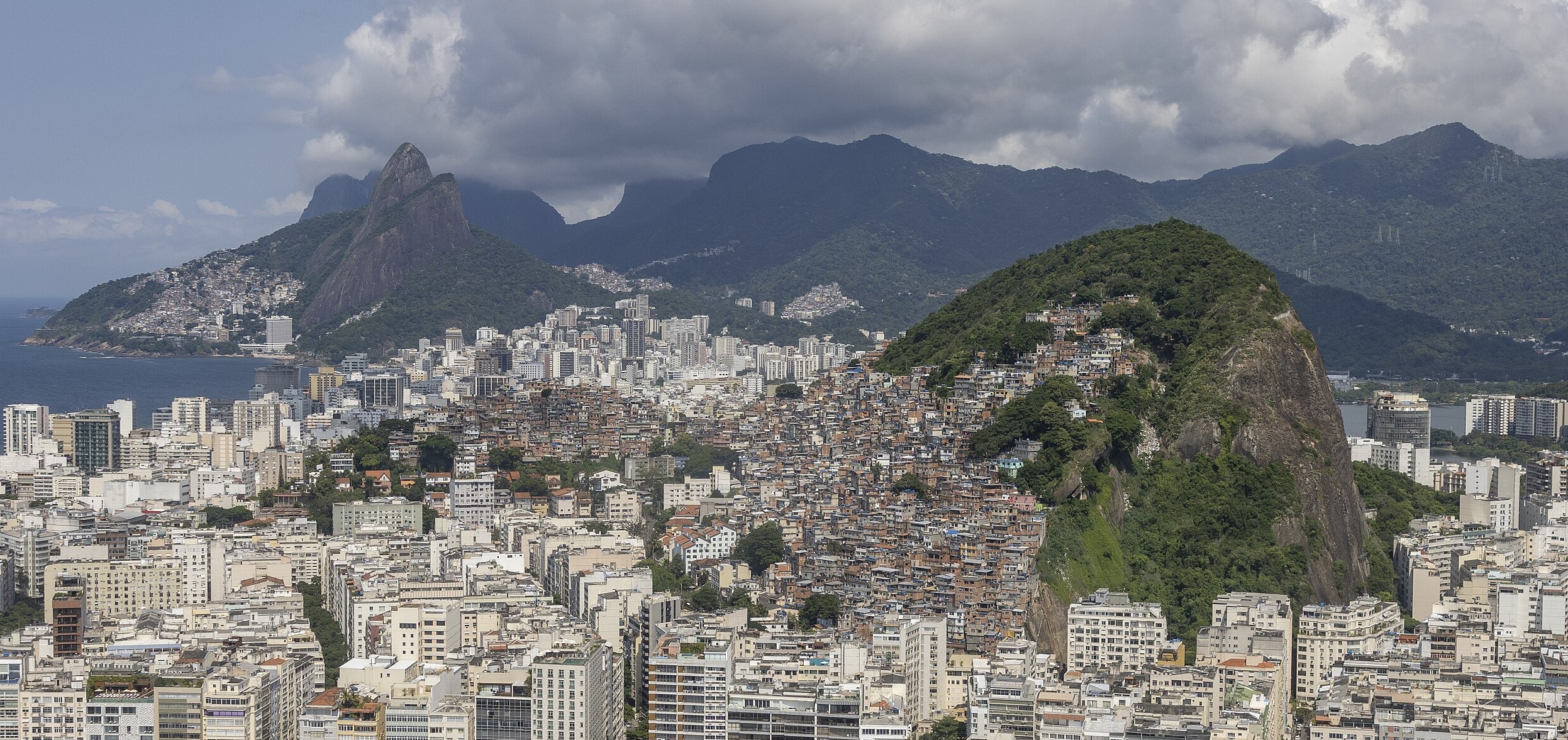
Clique aqui para Português
Check out our complete series of community media profiles here.
RioOnWatch recently had the pleasure of speaking with Ana Muza Cipriano, the founder of PPG Informativo, to learn more about her work, the history of this favela-based media channel, its impacts, and how she understands the importance of the favela journalism ecosystem.
When Ana Muza Cipriano started the PPG Informativo Facebook page a decade ago, people had already been knocking on her door in the early hours of the morning to tell her what was going on in their lives. So, according to Cipriano—who had already been influenced by Carla Siccos, founder of CDD Acontece community newspaper from City of God—it was a natural, though challenging, progression for her to create PPG Informativo, an online news source serving the South Zone favelas of Cantagalo and Pavão-Pavãozinho (PPG).
In 2024, the outlet operates under the slogan “de cria pra cria,” or ‘by locals, for the locals,’ and is run by a team of seven women volunteers from the community. Reaching over 13,000 followers on Instagram and 23,000 on Facebook, PPG Informativo publishes news related to residents’ most immediate concerns and proudest achievements.
The Need for “Cria” Journalism
Prior to starting PPG Informativo, Cipriano was featured as a “Parceira do RJ,” a community correspondent that reported on Brazil’s national Globo TV at lunchtime. She reported on PPG, among other favelas from elsewhere in the South Zone. That’s when she became known in the favela as someone who could help residents tell the stories that mattered to them.
Cipriano noticed a lack of shared information among residents of Cantagalo and Pavão-Pavãozinho despite a common location atop a mountain between the upscale neighborhoods of Ipanema and Copacabana. People in Pavão-Pavãozinho didn’t know, for example, that there were open technical courses available in Cantagalo. Cipriano took on the mission to help people access those spaces. In addition to identifying gaps in information herself, she welcomes news coming to her. Neighbors approach her with their most pressing concerns. During our interview, Cipriano receives a video from a resident showing issues he is experiencing with his electricity, a major issue covered by PPG Informativo.
Ver essa foto no Instagram
Cipriano tells me about the “cria for cria” model.
“[Our audience] are the residents of the territory, because ours is an outlet made for them, by them… We talk about very specific places that you [from outside] do not know. And the residents are the true reporters, because I can’t talk about the territory without the resident that’s helping me tell that story. You have to be cria to speak with property and belonging. ” — Ana Muza Cipriano
To illustrate this, Cipriano tells me about an online attack she suffered. In response to a PPG Informativo post notifying the community about a power outage in the Vietnam area of the favela, a person from outside the neighborhood, even though they were from [nearby] Copacabana, responded with angry messages, having misunderstood the post to be a commentary about the Vietnam War. “My response was that I am not talking to you down there in the formal city, who has electricity,” she tells me, “I am talking to those living up here at the top.”
Cipriano highlights that there is a certain value to working with outside media, but outside reporters can only do so much.
“They come from the newspaper, dressed in their formal clothes, and then they leave. Ultimately, whose number do the residents have?” – Ana Muza Cipriano
There is more trust in people who listen and continue to follow the story, and the issues raised: community journalists.
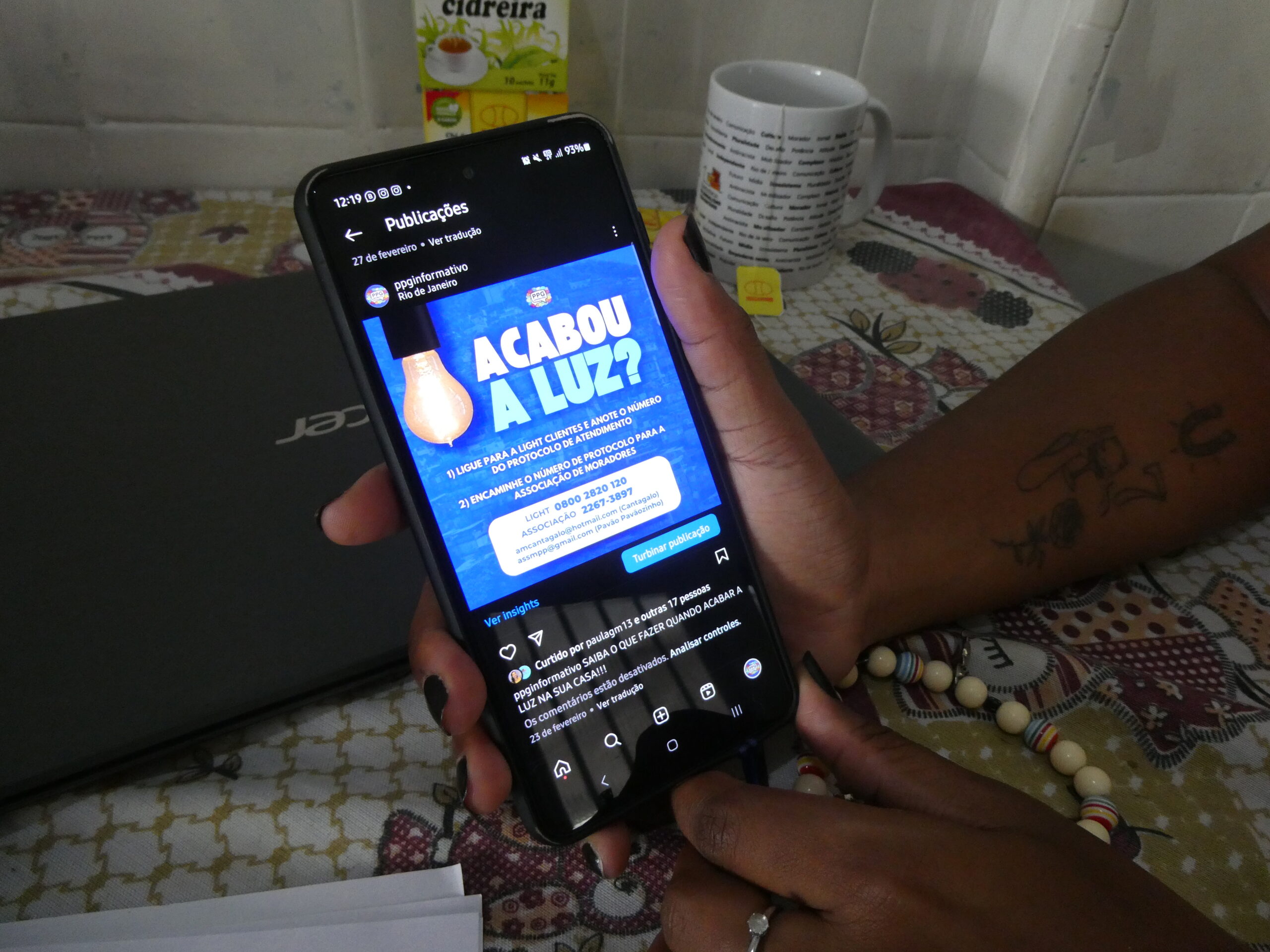
What the Team Covers
“The news has always focused on three issues: waste, water, and electricity. This does not change within a favela,” Cipriano says. In March 2024, many residents had been fully without electricity for over ten days. Refrigerated food had to be thrown out, and residents who live with the assistance of medical devices were at risk. The power outages are partly explained by the lack of governmental and technological assistance to support the community’s growth.
The last available census data for PPG is from 2010 when just 10,000 residents were reported. “If 23,000 people alone follow my newspaper, how can there only be 10,000 living in this community?” Cipriano asks rhetorically. Underserved due to this undercount, the overload of energy use has caused transformers to explode and the power to be cut.
The role that PPG Informativo takes on concerning electricity, then, is two-fold: to help disseminate quick information about the conditions of power outages across the favelas, and to advise residents on how to work together to get power back. Given that some residents pay for electricity and others do not, PPG Informativo takes on a role as mediator, encouraging a coordinated strategy and solidarity to help get power back. Showing examples across PPG Informativo‘s platforms, Cipriano explains how they also conduct similar communications and advisories during water shortages and work on environmental education concerning effective waste management.
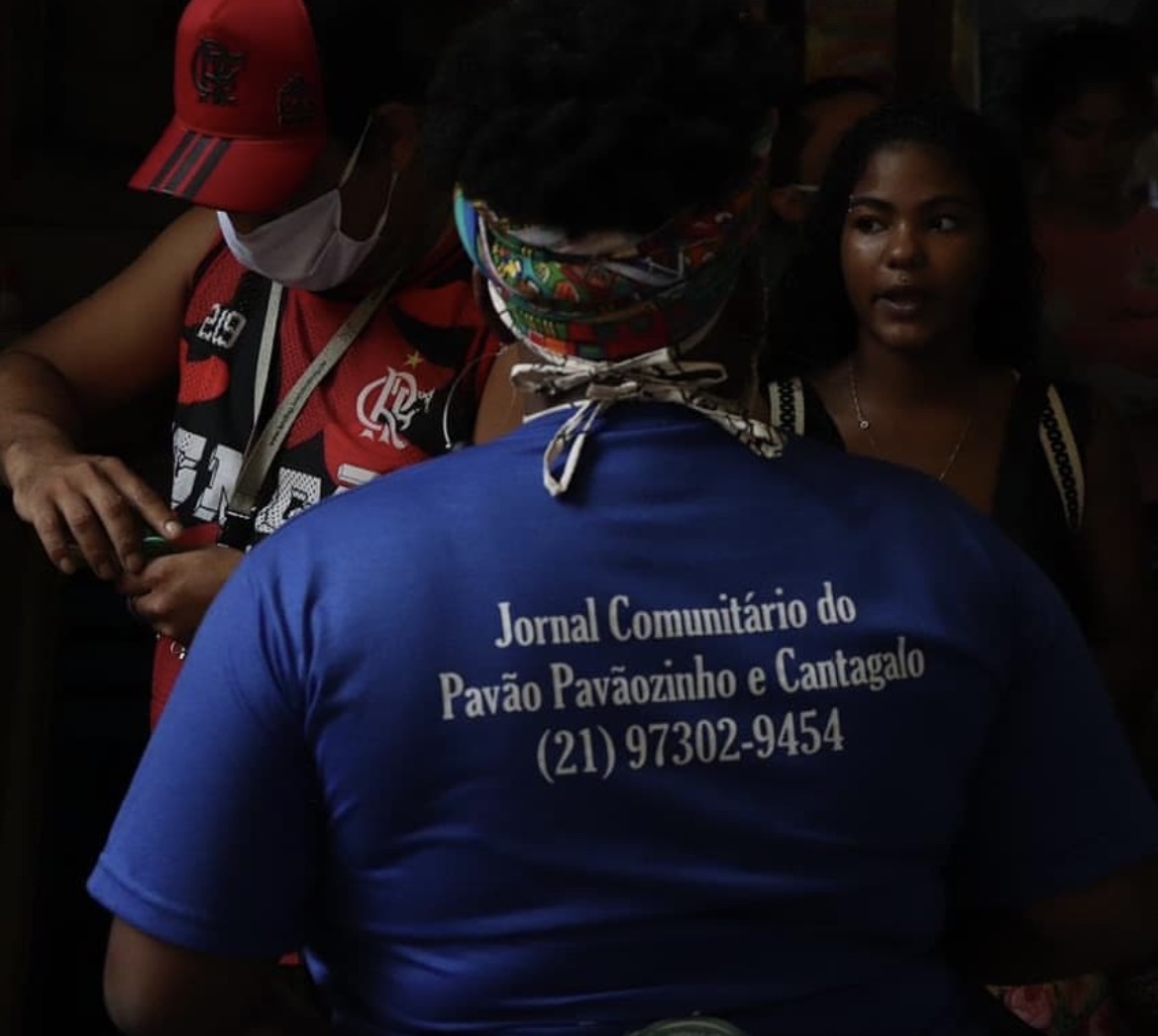
Though garbage, water, and electricity are certainly the key issues, the outlet takes on a broader role in promoting health and safety in the community. This includes organizing vaccination campaigns against tuberculosis, dengue, and Covid-19. It also means communicating during police operations, advising the community not to take certain roads, and urging parents to keep their children from walking to school alone.
Within these communications is a specificity of local knowledge. The PPG Informativo tuberculosis campaign, for example, was targeted to reach Serafim, an area of Pavão-Pavãozinho known to have the highest rate of the disease, with high density between homes.
PPG Informativo also differs from outside news sources through its focus on celebrating successes and joys of the community. Cipriano is particularly proud of their coverage of young girls who won recent medals in Jiu-Jitsu, boxing, and Muay Thai.
Beyond News
Beyond a strong Instagram and Facebook presence, PPG Informativo maintains frequent communication with the community via WhatsApp groups, some containing a thousand members. In one group, the team shares news, including electronic copies of mainstream newspapers. Another group is used to share job opportunities, and yet another functions as a space for residents to coordinate direct donation of items.
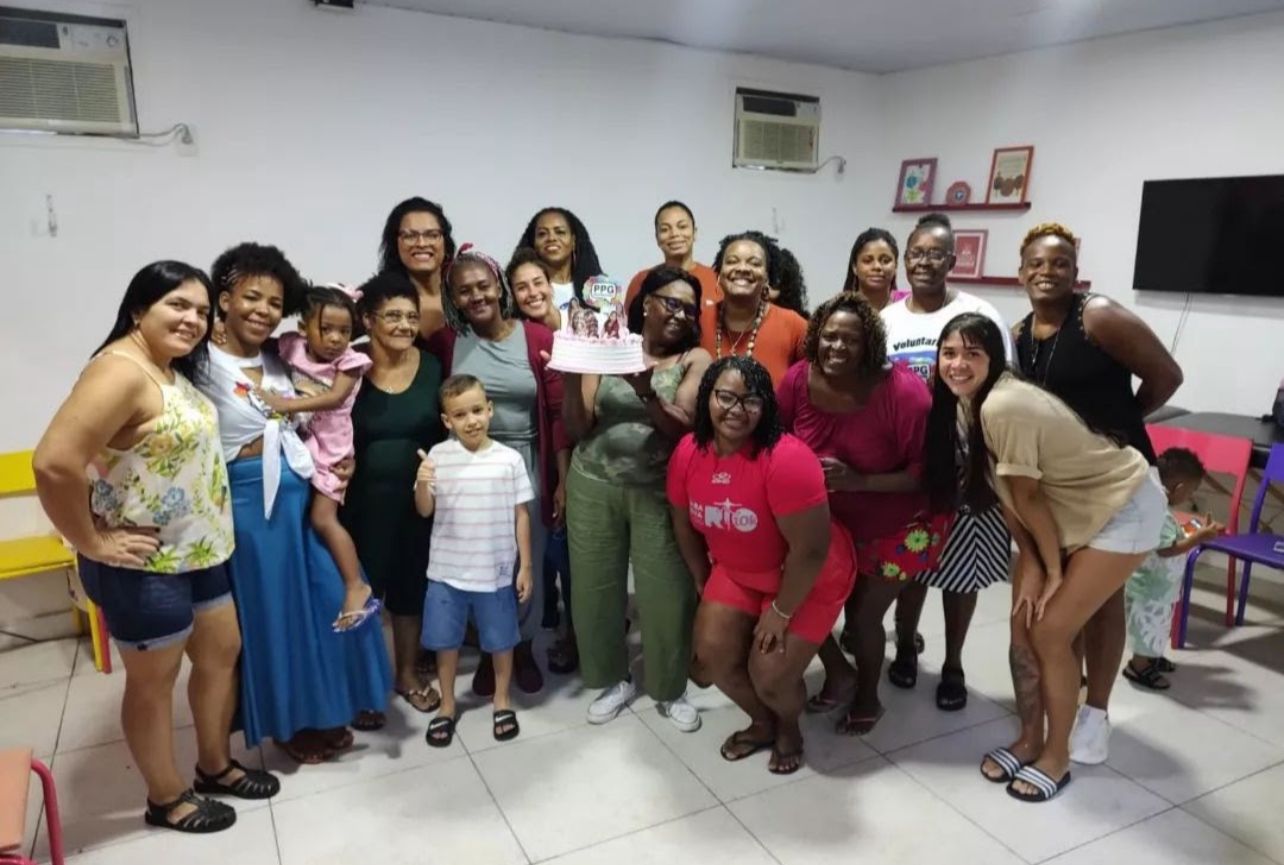
PPG Informativo also leads in-person events, such as their “Recess Time,” to collect school supplies for children in the community. During the pandemic, the team noticed that, while there was attention put toward supporting people through food donations, folks in the community needed other items such as sanitary pads and diapers, so they organized a campaign. These cumulative efforts demonstrate the power of PPG Informativo’s work, the power of community-based journalism. It is a close ear to what is happening in the favela, a deliberate effort to expand access to that knowledge, and direct action to address community needs.
What PPG Informativo Hopes to See
Looking to their future, Cipriano hopes PPG Informativo can start a podcast to engage speakers on healthcare, vaccinations, and broadly on subjects that raise community awareness.
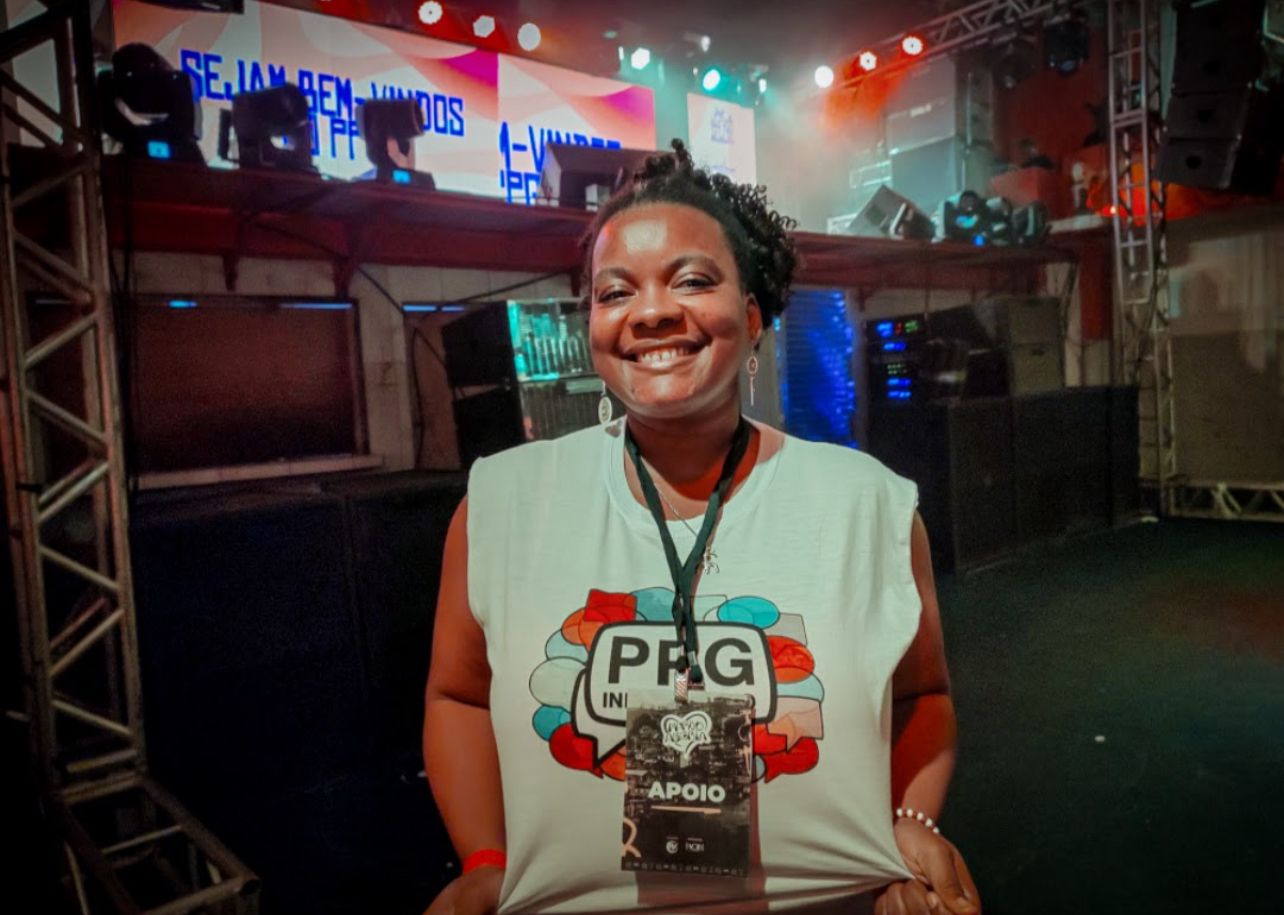
Reflecting on the bigger picture, Cipriano hopes to expand the presence of women in the field of journalism and to raise awareness about their challenges. “I arrive in meetings and see the same guys… We see the same faces, so we get the same stories… It’s time for us to hear from other Ana Muzas, other Carlas, other Thaíses.” She considers this mission every step of the way, as she constructs PPG Informativo.
“Big companies always place the male figure as the representative of that company, but behind them, I’m sure there is a female role there, who thinks, who executes, who directs… I want these potentialities close to me… We are women, and we are the thinkers, the executors, and orchestrators behind all the work we do.” — Ana Muza Cipriano
This year, PPG Informativo celebrates ten years of dedicated work. Striving to advance storytelling and information access in the community has been a constant challenge. In Cipriano’s words: “Every time I think I’m going to give up, a resident comes to me and says how important our news outlet is to them.” Thus, Cipriano and her dedicated team continue to honor that promise to their fellow neighbors.
Support PPG Informativo by making a donation here.
